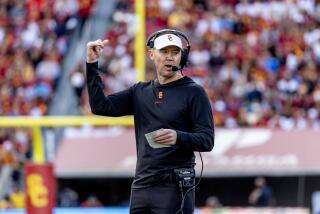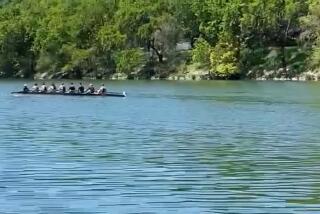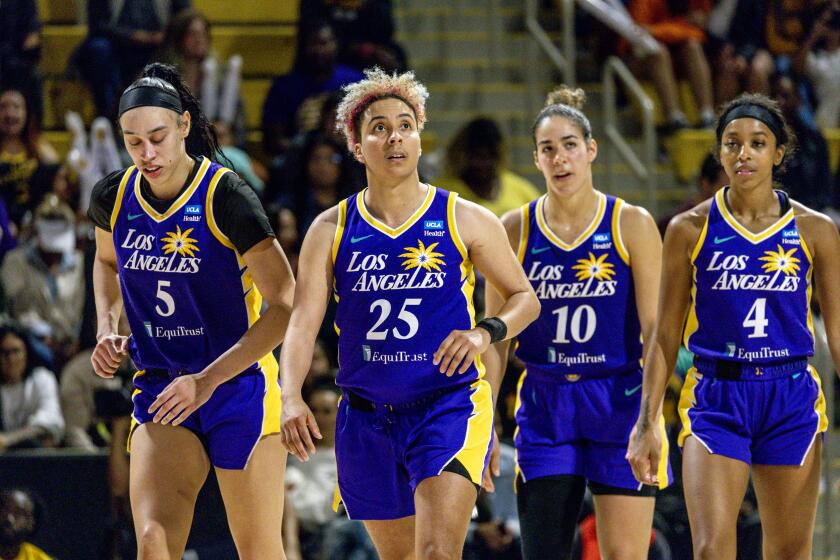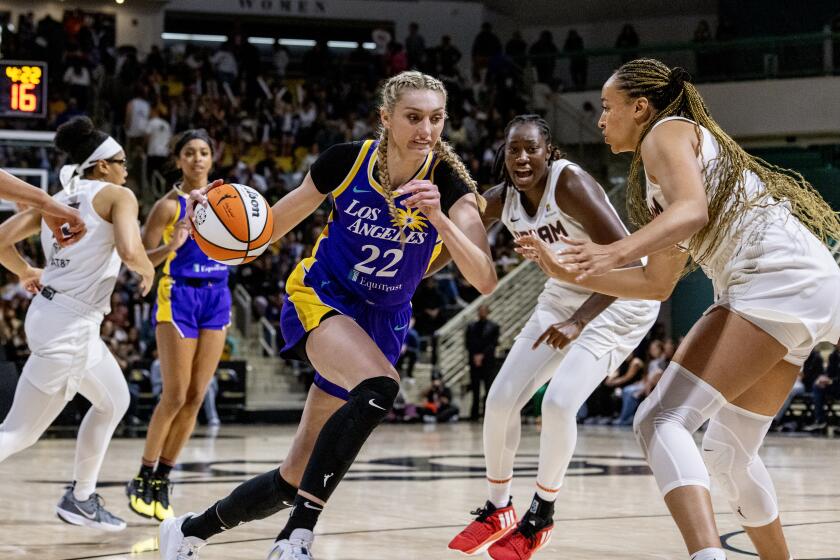McGuire Remembered as a Unique Character
Dick Enberg, during an informal gathering of CBS talent and television writers recently in Pasadena, was talking about John Wooden. He called Wooden one of the three greatest men he ever knew. Another was his father. The third was Al McGuire.
Friday, after McGuire’s death, Enberg said, “We lost a giant and a genius. Al was the most unique and incredible person I ever met.
“He saw life at a different angle than the rest of us. He could cut through all of the fat and get to the bone of the matter quicker than anyone I’ve ever known. He was a wonderful contradiction.
“While he worked at Marquette, Al always said he had a choice when he got to the campus each morning--he could turn left and go to work or he could take a right-hand turn into the Wisconsin countryside. Al always allowed himself to take a right-hand turn at least once a month.
“He let life happen and enjoyed it and he has now taken the ultimate right-hand turn.”
McGuire probably became more famous after he left coaching in 1977 and went into broadcasting. He teamed with Enberg and Billy Packer at NBC to form one of the most popular sports broadcasting teams of all time.
“Al McGuire is the original--a special person,” Packer said Friday. “If he ever met you, you never forgot it.”
He remembered people well, even if he couldn’t remember a name.
Years ago, after meeting a Times sportswriter, he said, “Your boss is one of my best friends in the whole world. What’s his name again?”
He was talking about Times sports editor Bill Dwyre.
“Everybody thought he was a basketball person,” Packer said. “He wasn’t a basketball person, he was a people person. The things I learned from Al had to do with insights into people.”
As a broadcaster, McGuire’s constant banter with Packer was priceless. McGuire-isms such as “tap city,” “white-knuckler” and “aircraft carrier” became part of the sport’s vocabulary.
In McGuire’s argot, a “thoroughbred” who was “dynamite” in practice and mediocre at “curtain time” was a “3 o’clocker.”
“Al was never a professional broadcaster, so anything that he did on air was not contrived,” Packer said. “He was able to articulate what he was seeing the way he thought he saw it. It was all natural, that’s why it was so well accepted.”
McGuire delivered one of his famous lines after Packer had observed that North Carolina center Geoff Crompton, who weighed more than 300 pounds, had shed 15 of them. Quipped McGuire, “That’s like the Queen Mary losing a deck chair.”
McGuire teamed with Enberg and Packer from 1977-81 before NBC lost the NCAA tournament to CBS. While Packer went on to CBS, McGuire stayed at NBC, teaming mostly with Enberg on college basketball. McGuire went to CBS in 1992.
Sean McManus, CBS Sports president, said, “Al McGuire would not want his friends to be unhappy today. He instead would want us to remember all the great times we shared.
“Anyone who was ever touched by Al knows there will never be another one like him. His philosophy on life, sense of humor, and generosity of spirit will be missed by all of his friends and all of his fans.”
Bob Costas, who occasionally worked with McGuire at NBC, said, “He was a genuine original who came out of a time when there were real characters in sports, not packaged images. Like the song says, ‘You gotta have heart,’ and Al had a world of it. He was a wonderful man.”
NBC Sports President Ken Schanzer said, “Al McGuire was a one-of-a-kind character and a one-of-a-kind talent. He was one of those rare talents who became synonymous with his sport. Al McGuire was college basketball and college basketball was Al McGuire.
“He was one of the most unique human beings on the planet. Though sometimes difficult to understand, he was one of the wisest men I’ve ever known. If you spent the time to understand what Al was saying, the effort was always rewarded with real pearls of wisdom.”
More to Read
Get our high school sports newsletter
Prep Rally is devoted to the SoCal high school sports experience, bringing you scores, stories and a behind-the-scenes look at what makes prep sports so popular.
You may occasionally receive promotional content from the Los Angeles Times.






